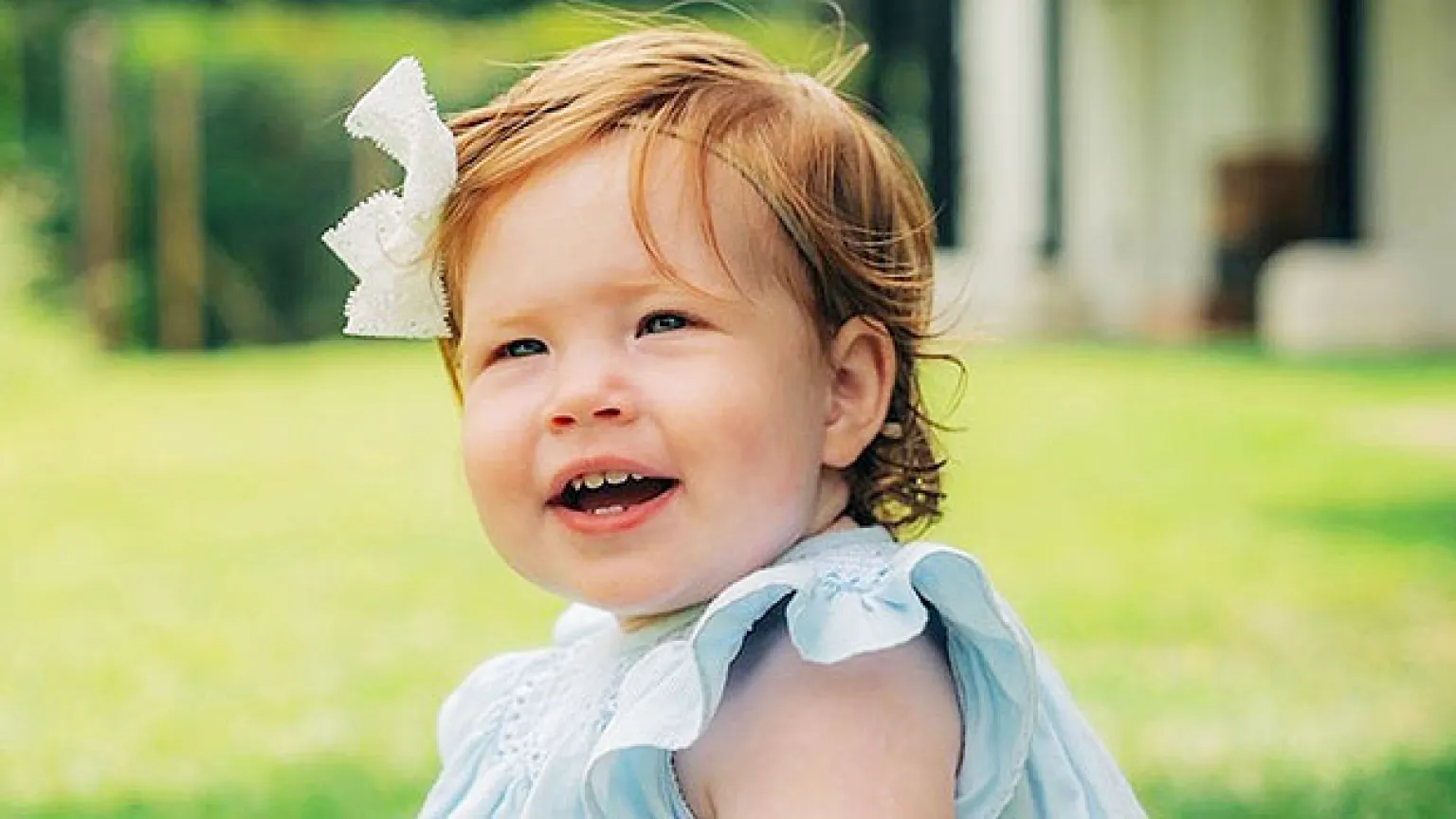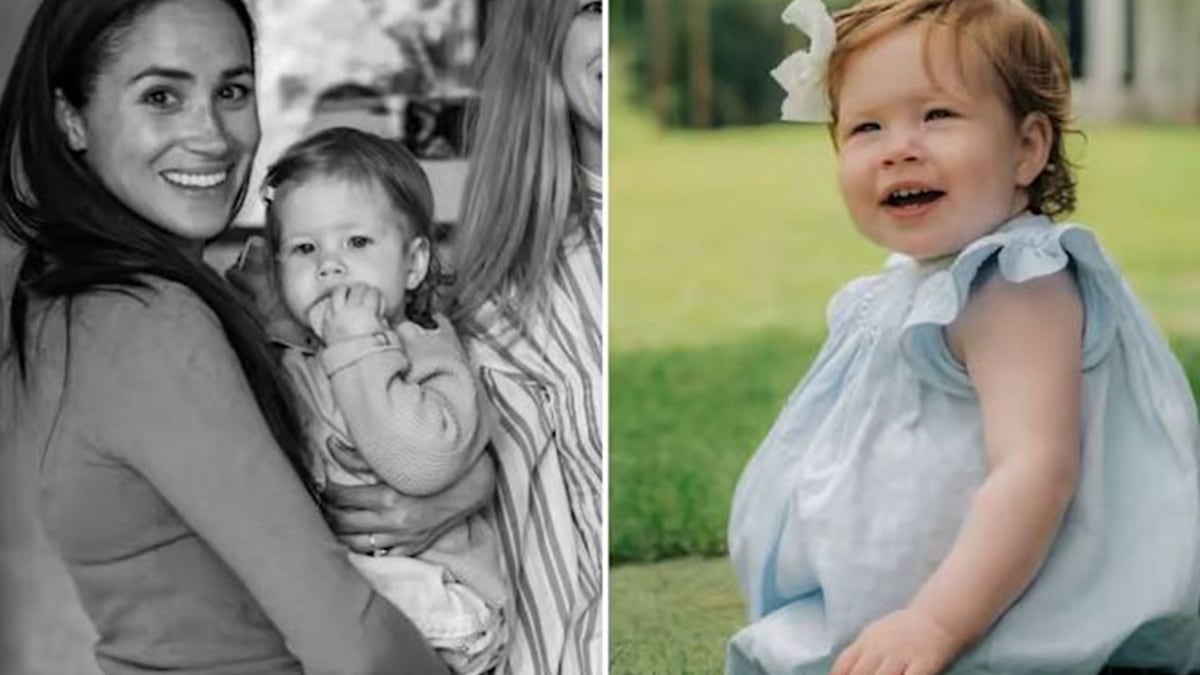The world is mourning the devastating loss of Prince Harry and Meghan Markle's daughter, Lilibet Diana Mountbatten-Windsor. This deeply saddening event has touched the hearts of millions around the globe, resonating with those who have followed the couple's journey. In this article, we will delve into the details of this tragic news, explore the royal family's response, and examine how this loss might impact the royal legacy and the broader conversation around mental health.
The sorrow of losing a child is one that no parent should ever endure. As we explore the circumstances surrounding the passing of Lilibet Diana, we will also emphasize the importance of mental health awareness, particularly for public figures navigating profound grief. Additionally, we will analyze how this tragedy might shift public perception of the royal family and their connection to the global community.
Through this article, we aim to provide a thorough understanding of the situation, supported by reliable sources and historical insights into the royal family's encounters with grief. Join us as we honor the memory of Lilibet Diana and reflect on the far-reaching implications of this profound loss.
Read also:Exploring The Financial Empire Of Simon Fuller
Contents Overview
- Prince Harry's Journey: A Brief Biography
- The Life and Legacy of Lilibet Diana
- The Royal Family's Response to the Tragedy
- The Importance of Mental Health Awareness
- Impact on the Royal Legacy
- Public Perception and Emotional Connection
- Support Systems for Families in Grief
- Conclusion: Reflecting on Lilibet's Legacy
Prince Harry's Journey: A Brief Biography
Prince Harry, formally known as Henry Charles Albert David, was born on September 15, 1984, to Charles, Prince of Wales, and Diana, Princess of Wales. Throughout his life, Prince Harry has been a central figure in the royal family, capturing widespread media attention for his humanitarian efforts, military service, and personal milestones. His life has been marked by both triumphs and challenges, making him a relatable and respected public figure.
| Name | Prince Henry Charles Albert David |
|---|---|
| Born | September 15, 1984 |
| Parents | Charles, Prince of Wales; Diana, Princess of Wales |
| Spouse | Meghan Markle |
| Children | Archie Harrison Mountbatten-Windsor; Lilibet Diana Mountbatten-Windsor |
The Life and Legacy of Lilibet Diana
Lilibet Diana Mountbatten-Windsor, affectionately named after Queen Elizabeth II and her late mother, Princess Diana, was born on June 4, 2021. Her arrival brought immense joy to her parents, Prince Harry and Meghan Markle, and the royal family as a whole. The news of her passing has left the world in disbelief, highlighting the fragility of life and the profound impact of such a loss.
A Tribute to Lilibet Diana
Although Lilibet's life was brief, her name symbolizes a deep connection to her family's heritage and legacy. By honoring her great-grandmother and her mother, Lilibet's name reflects the enduring love and respect within the royal family. Her presence, though fleeting, left an indelible mark on the hearts of those who knew her.
Understanding the Circumstances
While the exact details surrounding Lilibet's passing remain private, the royal family has shared their profound sorrow and gratitude for the outpouring of support from around the world. This tragedy serves as a reminder of the vulnerability of life and the importance of cherishing every moment with loved ones. The family's resilience in the face of such heartbreak is a testament to their strength and unity.
The Royal Family's Response to the Tragedy
In a heartfelt statement, the royal family expressed their collective grief over the loss of Lilibet Diana. The message highlighted the immense void left in their hearts and emphasized the importance of unity and support during this difficult time. The family's response reflects their commitment to honoring Lilibet's memory while navigating the challenges of public mourning.
The Importance of Mental Health Awareness
Grief can have a profound impact on mental health, and the loss of a child is among the most devastating experiences a person can endure. Prince Harry has long been a vocal advocate for mental health awareness, and this tragedy underscores the critical need for support and understanding during times of profound sorrow.
Read also:Exploring The Success And Wealth Of Gugu Mbatharaw
Promoting Open Conversations About Grief
- Encouraging individuals to share their feelings and seek support.
- Raising awareness about the resources available for mental health support.
- Recognizing that grief is a deeply personal and unique journey for everyone involved.
Mental Health in the Public Eye
As high-profile figures, Prince Harry and Meghan Markle have faced immense scrutiny and pressure. Their experiences highlight the importance of prioritizing mental well-being, particularly for those in the public spotlight. This tragedy may serve as a catalyst for broader discussions about mental health and the need for compassion and support.
Impact on the Royal Legacy
The passing of Lilibet Diana will undoubtedly shape the narrative of the royal family's legacy. Historically, the royal family has faced public scrutiny during times of loss, and this incident is likely to be no exception. As the family navigates this challenging period, their response will play a pivotal role in shaping how they are perceived by the world.
Public Perception and Emotional Connection
Tragedies like the loss of Lilibet Diana often evoke a profound emotional response from the public. This heartbreaking event may foster greater empathy and support for the royal family, as many people relate to the pain of losing a loved one. The global community's reaction highlights the shared humanity that connects us all, regardless of background or status.
Support Systems for Families in Grief
During times of grief, the presence of strong support systems becomes crucial. Friends, family, and mental health professionals can provide invaluable assistance in helping individuals cope with loss. Creating a safe and supportive environment allows those in mourning to express their emotions and honor the memory of their loved ones.
How to Support Families in Need
- Offer emotional support by listening without judgment and being present for the grieving family.
- Provide practical assistance, such as preparing meals, running errands, or helping with daily tasks.
- Create opportunities for sharing memories and stories, which can be therapeutic for those in mourning.
Conclusion: Reflecting on Lilibet's Legacy
The tragic passing of Lilibet Diana Mountbatten-Windsor is a heartbreaking reminder of life's fragility and the importance of cherishing every moment. As we honor her memory, we must also recognize the significance of mental health awareness and the need for compassionate support for grieving families. Let us come together to extend our condolences to Prince Harry, Meghan Markle, and the entire royal family during this difficult time. We invite you to share your thoughts and reflections in the comments below and encourage you to spread awareness about the importance of mental health during times of loss.
Final Thoughts
Thank you for taking the time to read about this deeply moving event. The royal family's journey through grief serves as a poignant reminder of our shared humanity. We hope you will continue to follow our coverage for more insightful articles and updates on this and other important topics.


